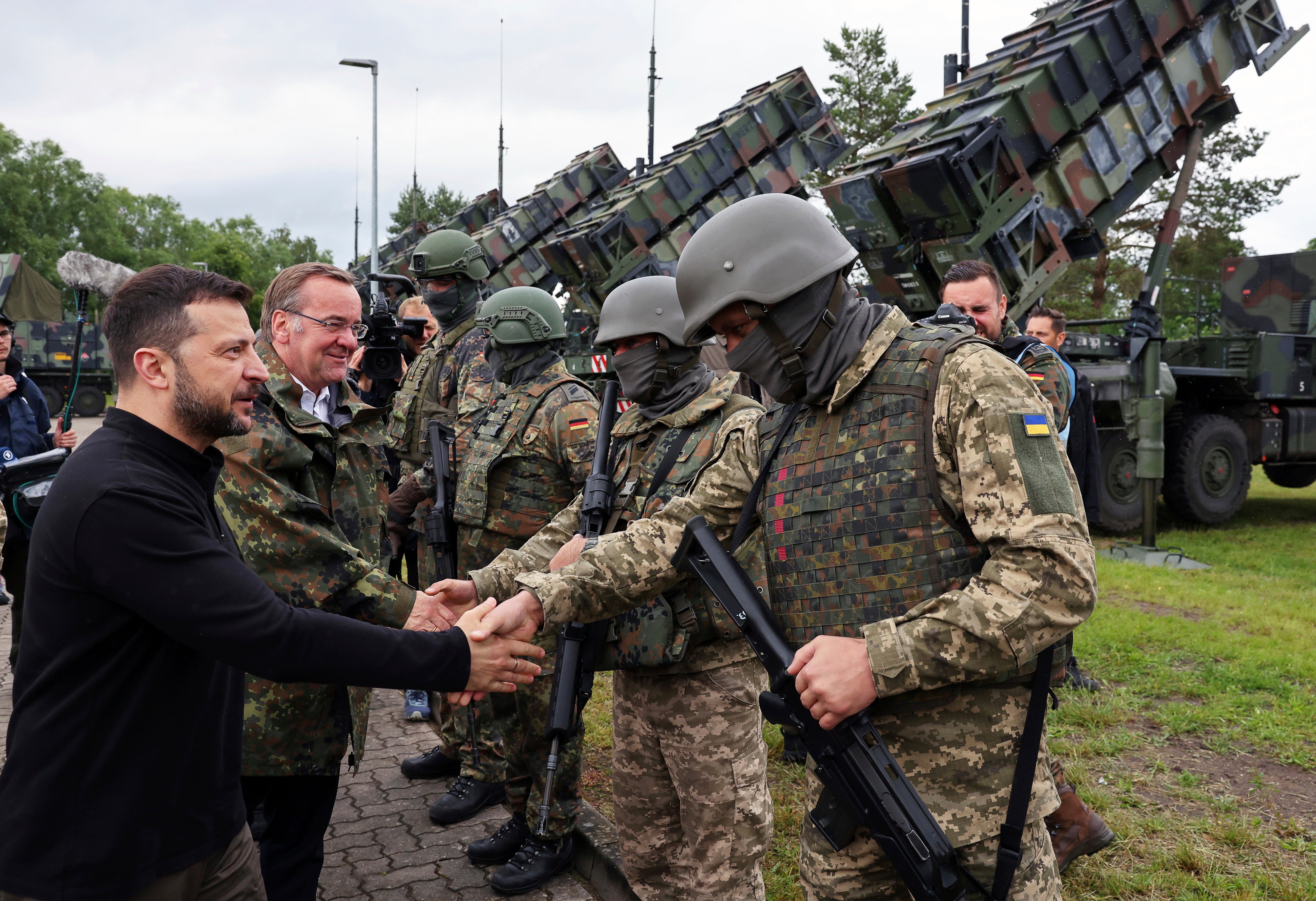The enemy within: How corruption and inefficiency are sabotaging Ukraine’s war effort
The most senior Ukrainian official in charge of reconstruction has resigned, bitterly complaining that his position was deliberately undermined by the Zelensky government, writes Kim Sengupta – such instability could prove deeply damaging


The coming days are of crucial importance for Ukraine’s efforts to secure financial and international diplomatic support as it faces one of the most dangerous periods since the start of the Russian invasion.
A reconstruction and recovery conference being held in Germany seeks to raise billions of dollars from business and funds abroad. The G7 summit in Italy is due to sign off a plan under which profits from frozen Russian assets will be sent to Kyiv. And a global peace conference will be held in Switzerland to try and find a roadmap out of the war.
Around 90 states will be at the conference in Lucerne and a number of leaders, including French president Emmanuel Macron and German chancellor Olaf Scholz, will be in attendance. Russia is not invited and China, with its ever-closer ties with Moscow, is not attending. Moscow and Beijing, it is claimed, are encouraging countries in the global south to keep away. There is little chance of peace breaking out.
But the money is a more tangible aim. Ukraine will require hundreds of billions of dollars for reconstruction – according to one World Bank estimate, $500bn for the initial 10 years alone. Around $300bn in Russian assets are currently frozen worldwide – and Kyiv, backed by some of its allies (including the US), wants the funds as reparations.
This is not on the cards, certainly for the time being, with the European Union believing that will be a breach of international law. But an alternative move, led by the Biden administration, for $50bn in profits from the frozen assets to be supplied to Kyiv in the form of soft loans, is likely to succeed.
Speaking at the Berlin conference, European Commission president Ursula von der Leyen said the EU will provide more than $2bn from its assistance programme. “Putin must fail and Ukraine must prevail. We must help Ukraine to rise from its own ashes and to be the master of its own future”, she declared.
US special envoy Penny Pritzker stated that sustained commitment was needed from the private sector as well as states to ensure Ukraine survives militarily and rebuilds. But in a telling message she stressed this was “predicated upon having good stewardship by those who are managing the reconstruction efforts across the Ukrainian government. It’s urgent to tackle the corruption, the customs evasion, the grey markets”.
Allegations of corruption and mismanagement have continued to bedevil Ukraine.
Pritzker spoke after the most senior Ukrainian official in charge of reconstruction resigned, bitterly complaining in an extensive Facebook post that his position had been deliberately undermined by Volodymyr Zelensky’s government.
Mustafa Nayyem, head of the State Agency for Restoration and Infrastructure Development, said he had been prevented from attending the Berlin conference on reconstruction.
Nayyem had, according to reports, told members of Western donor agencies and USAID (United States Agency for International Development ) in a recent meeting that he did not expect to remain in office much longer.
Two senior officials dealing with anti-corruption policies resigned with Nayyem. One of his close allies and associates, Oleksandr Kubrakov, deputy prime minister and infrastructure minister, has already been fired. Both the men had claimed that there had illegal attempts by politicians and businessmen to get slices of the lucrative foreign funding.
In an extraordinary show of support, the American, German, French and EU ambassadors published messages of support on social media for Kubrakov after his departure. US ambassador Bridget Brink wrote: “Thank you @OlKubrakov for a great partnership over the last two years that enabled Ukraine’s fight for freedom by keeping Ukraine’s exports alive, protecting the energy grid & supporting the economy.”
There has been a seemingly neverending churn in the Ukrainian government with ministers and senior officials sacked. This has included the defence minister, all deputy defence ministers, and General Valerii Zaluzhny, the highly popular head of the armed forces who has been appointed ambassador to London but is yet to arrive.
Some of those who have gone were viewed by Western powers as capable and effective – and there has been consternation at their removal while others suspected of graft remain in post.
The government insists that it is determined to tackle corruption, offering examples like Zelensky sacking all regional officials in charge of military conscription last year amid bribery concerns and the detention last year of the former supreme court head Vsevolod Knyazev.
But allegations of corruption continue to linger, and instability in government will prove damaging to Ukraine as it strives for international support at a particularly threatening period.
Donald Trump cited corruption and mismanagement for delaying assistance to Kyiv when he was president. Right-wing Republicans in the US Congress also raised these issues when holding up, until recently, a $60bn arms package for Ukraine.
What goes on in the Zelensky government will be scrutinised if Trump gets back in the White House in November. Upheavals among officials and ministers in Kyiv will not help in ensuring the American support Ukraine needs to withstand Russian aggression.






Join our commenting forum
Join thought-provoking conversations, follow other Independent readers and see their replies
Comments